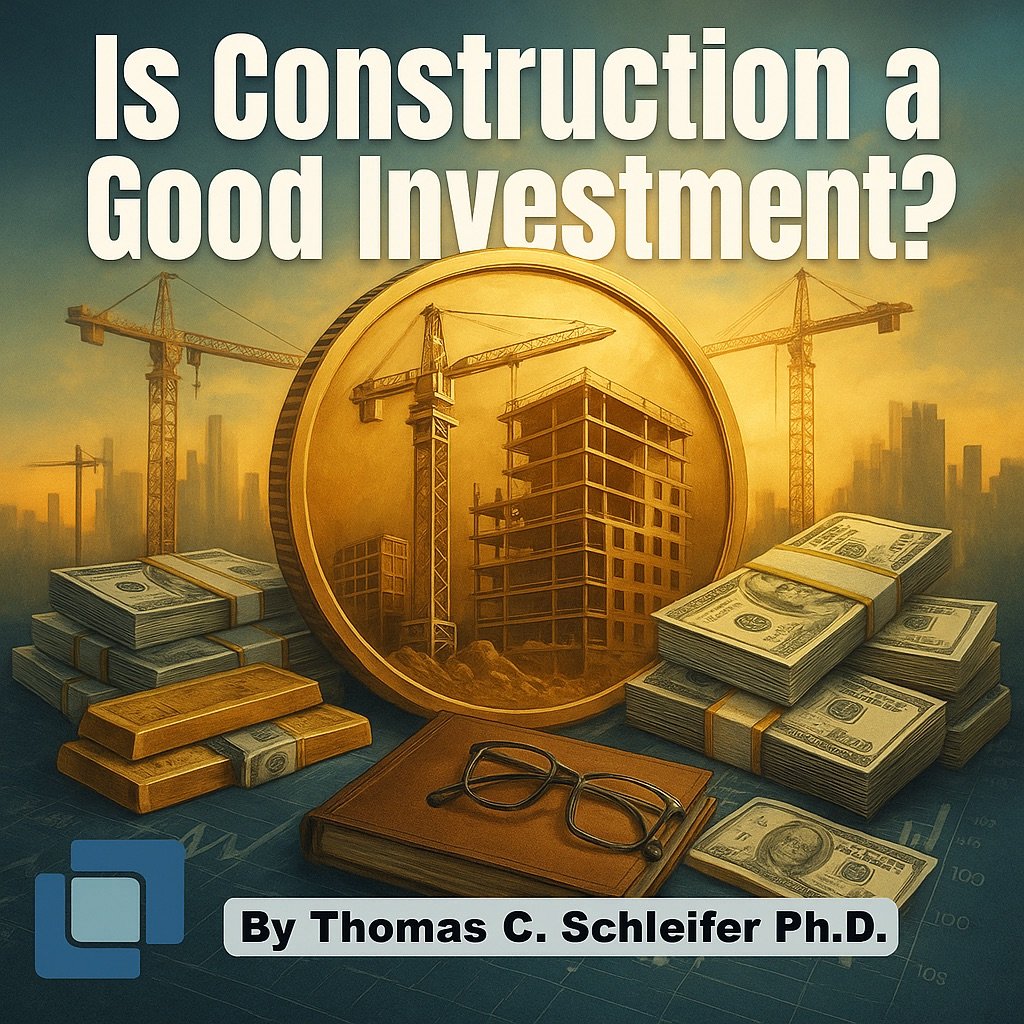
I’ve been a management consultant to the construction industry for 40 years. I have taught construction business management at some of the nation’s best construction universities. I have spoken at literally thousands of construction industry conventions. In all that time, and in all those venues, I have never asked myself, nor have I been asked by anyone else whether I thought the construction business was a good investment.
“Dr. Schleifer…should I invest my family savings in a construction company, or would I be better off buying stock in Coke and waiting for a world-wide thirst to set in?”
“Is construction a good business to be in? Should I guide my child’s career toward construction rather than technology?”
Why has no one ever asked me these most fundamental questions?
Why have I never asked myself if construction is a good business?
What Is a Good Business?
This is, of course, the elementary question. The first answer that comes to mind is “Any enterprise that makes a profit is a good business.” But this definition is deficient since a business that makes a profit for a period of time but proceeds to lose money occasionally, would not be considered a good business.
So, let’s ask the most successful investor of all time how he would define a “good” business. After sifting through many of Warren Buffett’s memorable quotes, this one stood out as the most incisive and complete on the subject:
“Determine the competitive advantage of any given company and, above all, the durability of that advantage.”
Like all of Buffett’s quotes, you must ponder them for a while before you capture his sometimes deceptively deeper meaning. What is the “competitive advantage” of a construction company? Construction companies don’t patent distinctive products or capture dominant market share. Construction companies sell construction services. Their only “competitive advantage” is the excellence of their management and operational skill sets.
Is Construction a Good Business?
What is construction’s competitive advantage? Buffett puts a little different spin on the ball with this insight.
“Invest in as much of yourself as you can. You are your own biggest asset by far.”
And he adds: “Anything you invest in yourself; you get back tenfold.”
When contractors invest their time, energy, and fortune in their construction company, they are investing in themselves. That is their competitive advantage. That’s why, for them, the construction business is a good investment. In fact, it is probably their “best” investment.
Why did I never see this clearly before? Construction is a good investment for the contractor and the construction professionals in the company. They are investing in themselves. These construction professionals are not investing in somebody else’s vision and skill set. They are following the advice of the greatest investor of all time, and most of them have fared quite well.
So, what’s my problem? What am I worrying about? What have I been talking about for the past forty years? What about all the construction companies that have failed over the years? Did the construction professionals involved make a bad investment?
Bad Beliefs Lead to Bad Habits
Because of the complex nature of the construction transaction, some construction professionals are willing to lose money on certain jobs because they believe that in the long run the “profitable” jobs make up for the inevitable “unprofitable” jobs.
Ooopps…This “bad” belief violates another of Buffett’s rules of “good” business behavior and turns otherwise “good” investments (in construction professionals themselves) into bad investments.
Buffett says, “Most behavior is habitual, and that the chains of habit are too light to be felt until they are too heavy to be broken.”
Losing money on some jobs is a bad habit that has been going on so long in the construction industry that it has become a firmly held belief that it is unavoidable and just part of the business. It also violates Buffett’s first two rules of “good” business behavior:
Rule #1 – Never Lose Money
Rule #2 – Never forget rule #1
Summing Up 40 Years of Teaching
Construction is a complex, risky business transaction that is, nevertheless, the best investment for construction professionals because, as Buffett says, they are investing in themselves. Construction is, however, a high-risk business because of the many unexamined erroneous beliefs that have grown up around a highly complex business transaction.
It has been my mission to examine these unexamined beliefs and to reduce their negative impact on construction profits. I will examine more unexamined construction industry beliefs next week. Tune in.
For more information on growth of a construction company, read more at: GROWTH
For a broader view of strategic project planning, read more at: PLANNING
To receive the free weekly Construction Messages, ask questions, or make comments contact me at research@simplarfoundation.org.
Please circulate this widely. It will benefit your constituents. This research is continuous and includes new information weekly as it becomes available. Thank you.


